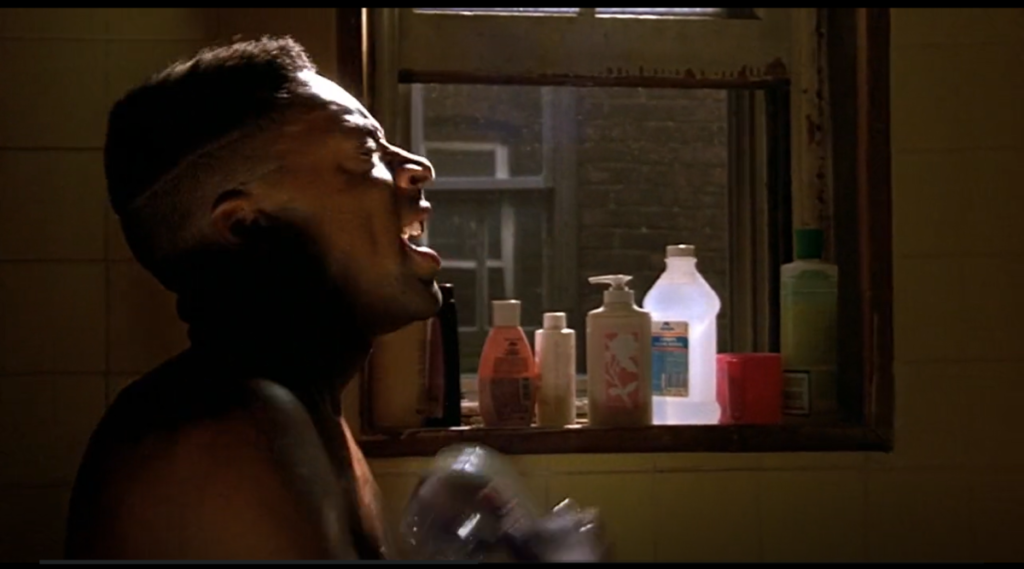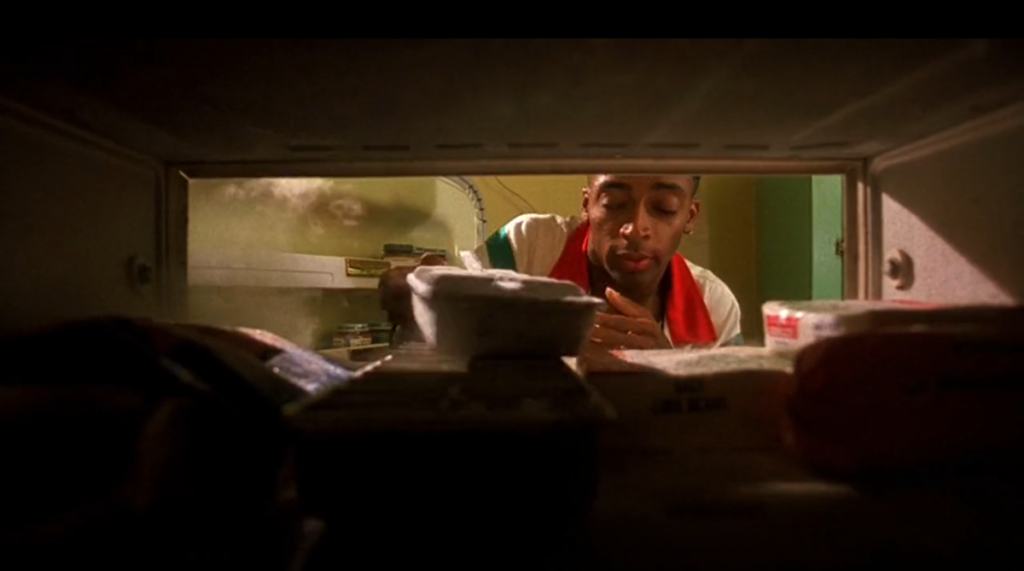If the initial chunk of a story can be eliminated without detracting from the rest of the story, then that section should be eliminated (Orson Scott Card, How to Write Science Fiction & Fantasy, 1990).
As such, we can assume with any story that the first piece of information we are given somehow ties into the rest, even if it’s purely symbolic. In Do the Right Thing (Spike Lee, 1989), the very first thing we are told is that it is an incredibly warm day, and as such the entire film is tinted in a warm, orange tone.
As well as being indicative of summer, the constant orange tone also serves to highlight a feeling of sunset, foreshadowing that the warmth and safety of the light will be traded with the danger and lawlessness of the night, which is when Radio Raheem is murdered.


During this heatwave, the two times we witness Mookie skive work, we see him once take a shower, and later lather his girlfriend with ice.
Water represents freedom as it’s a relief from the warm weather, and serves to contrast Sal from the brothers. When he drives by the children happily soaking themselves in the water, he is outraged to be soaked in it.
But the contrast between heat (and thus, fire) and water is not a static metaphor representing the oppressors and those oppressed within this film. While initially the brothers play in the water to cool off, use it to deal with Sal, and then have their source cut off by the police, water is also used to cancel the riot had later in the film, dowsing the fire started by Smiley.
By changing the hierarchy of fire and water throughout the film, Lee draws into focus the complexity of violence in dealing with ratial relations. Sometimes, the oppressed seek to flee the heat using water and have that water (or their permission to have it in Mookie’s case) cut off; while other times the oppressed utilise heat to regain power, and have that fire be dowsed by the water.
This contrasting and shifting role of violence and oppression is finally made explicit at the end of the film by the two contrasting quotes from Martin Luther King and Malcom X at the end of the movie. One calling for violence having absolutely no role in resolving ratial relations, and the other stating that it is sometimes necessary. Through the seemingly insignificant detail of setting the story during a heatwave, Lee permits this shifting metaphor to permeate the entire film.